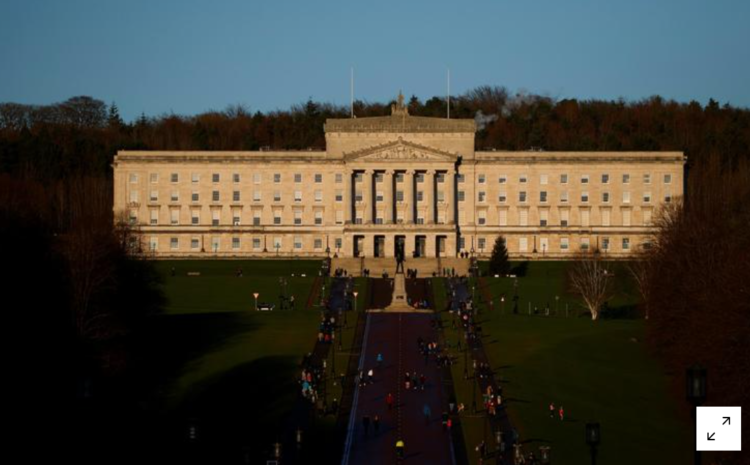While the groups pledged “peaceful and democratic” opposition to the deal, such a stark warning increases the pressure on Johnson, his Irish counterpart Micheál Martin and the European Union over Brexit.
Northern Ireland’s 1998 peace deal, known as the Belfast or Good Friday Agreement, ended three decades of violence between mostly Catholic nationalists fighting for a united Ireland and mostly Protestant unionists, or loyalists, who want Northern Ireland to stay part of the United Kingdom.
The loyalist paramilitaries including the Ulster Volunteer Force, Ulster Defence Association and Red Hand Commando said they were concerned about the disruption to trade between Great Britain and Northern Ireland due to the Brexit deal.
“The loyalist groupings are herewith withdrawing their support for the Belfast Agreement,” they said in a March 3 letter to Johnson from Loyalist Communities Council chairman David Campbell.
Reuters has seen a copy of the letter. A similar letter has been sent to the Irish leader and copies were sent to the European Commission Vice President Maros Sefcovic.
The paramilitary groups said they were determined that unionist opposition to the Northern Irish Protocol was peaceful but added a warning.
“Please do not underestimate the strength of feeling on this issue right across the unionist family,” the letter said.
“If you or the EU is not prepared to honour the entirety of the agreement then you will be responsible for the permanent destruction of the agreement,” it said.
They said they would not return to the deal until their rights were restored and the Northern Irish Protocol – part of the 2020 Brexit Treaty – was amended to ensure unfettered trade between Britain and Northern Ireland.
But, they said, their core disagreement was more fundamental: that Britain, Ireland and the European Union had in the Northern Irish Protocol breached their commitments to the 1998 peace deal and the two communities.
Asked about the warning, Johnson’s spokesman said: “We are fully committed to the Belfast, Good Friday, Agreement. We will continue to work to safeguard Northern Ireland’s integral place in the United Kingdom … We are determined to protect the agreement in all of its dimensions.”
PEACE IN NORTHERN IRELAND
Preserving the delicate peace in Northern Ireland without allowing the United Kingdom a back door into the EU’s markets through the 310-mile (500 km) UK-Irish land border was one of the most difficult issues of the Brexit divorce talks.
The loyalist groups endorsed the 1998 deal and decommissioned their weapons in the years that followed. Residual violence since the accord has largely been carried out by dissident nationalist groups who opposed the peace deal.
Since Brexit proper on Jan. 1, 2021, Northern Ireland has had problems importing a range of goods from Britain – which unionists, or loyalists, say divides up the United Kingdom and so is unacceptable.
The European Union promised legal action on Wednesday after the British government unilaterally extended a grace period for checks on food imports to Northern Ireland, a move Brussels said violated the terms of Britain’s divorce deal.
Ireland said Britain was behaving inappropriately. Johnson’s spokesman said the government had notified the EU and Ireland earlier this week of the move, which he described as being “common in other international trade agreements”.
“For the second time in the course of a few months, the British government has threatened to breach international law,” Deputy Prime Minister Leo Varadkar told Virgin Media television, referring to a similar unilateral move last year that London eventually dropped.
“This is not the appropriate behaviour of a respectable country, quite frankly.”
Joe Biden, while campaigning in the presidential election last year, bluntly warned Britain that it must honour the 1998 peace agreement as it withdrew from the European Union or there would be no separate U.S. trade deal.
Reporting by Guy Faulconbridge, additional reporting by Elizabeth Piper, editing by Estelle Shirbon and Giles Elgood
Our Standards: The Thomson Reuters Trust Principles

